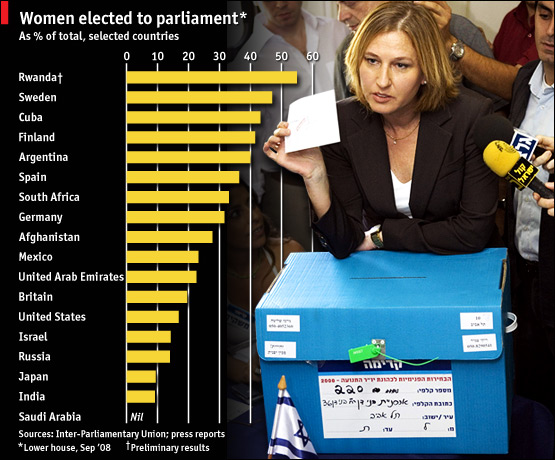Women and politics
女人和政治
Engendering change
產(chǎn)生變化
Rwanda becomes the first country to elect a majority of women to parliament
盧旺達成為世界上首個女性占議會多數(shù)席位的國家

FROM gaining the right to vote to holding office, women have achieved much in the battle for equal political rights. But on many counts, progress has been slow. In the 100 years since women were first elected to a national parliament, only 18.4% of seats worldwide are currently held by women. To address this, some 110 countries have introduced rules to help women get elected. Rwanda’s has been the most successful—this week, thanks to a 30% seat guarantee, it became the first country in the world to elect a majority of women to parliament. Opponents of quotas say that women such as Tzipi Livni, the new leader of Israel’s ruling party, do pretty well without them.
自獲得投票權(quán)到在政府任職,女性在爭取平等政治權(quán)利的斗爭中收獲頗豐。不過總的來說,進展緩慢。女性首次入選議會已有百年歷史,但如今女性只占有世界議席總數(shù)的 18.4%。為解決這一問題,約有110個國家都引入了旨在幫助女性當(dāng)選議員的規(guī)則。盧旺達最為成功——本周,由于30%的議席保證規(guī)則,它成為世界上首個女 性占議會多數(shù)席位的國家。反對議席配額保證的人表示,沒有這一制度的支持,女性也表現(xiàn)得很好,比如以色列執(zhí)政黨前進黨的新領(lǐng)袖拉芙妮。











